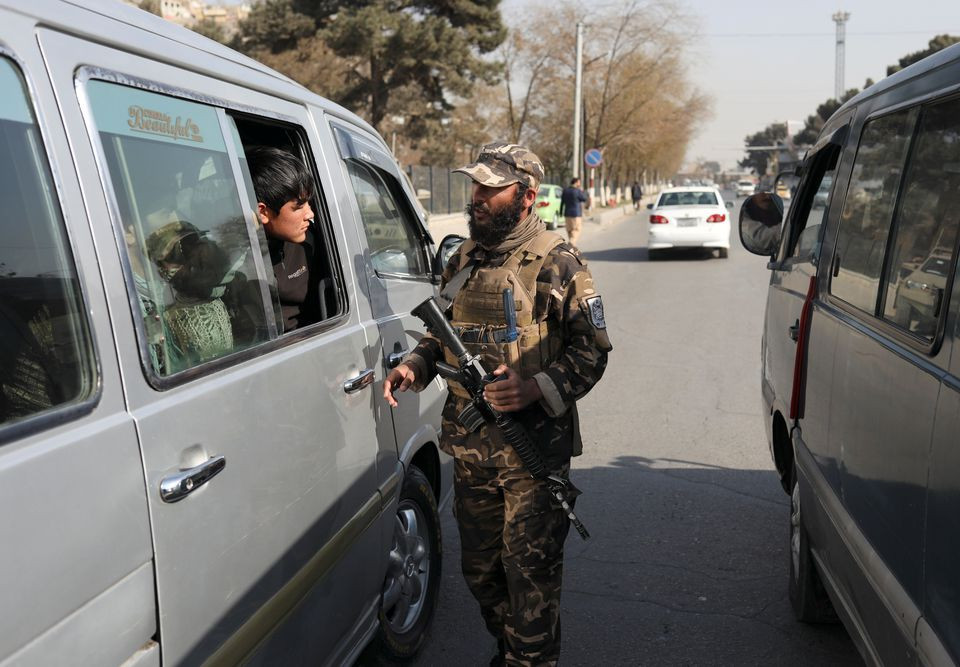In an unusual move, Pakistan has given a damning assessment of the Afghan Taliban regime’s 16 months in power, saying the interim government has done little to form inclusive government, protect the rights of women and eradicate terrorist groups.
The lack of progress, Pakistan notes, means that the critical support needed by Afghanistan to deal with the humanitarian and economic crises and other challenges has faltered.
The assessment was shared by Pakistan’s special envoy on Afghanistan Ambassador Muhammad Sadiq during a meeting of Afghanistan’s neighbours and others held in Moscow on Wednesday.
The 4th meeting of the Moscow Forma was held in the Russian capital with participation from Russia, Kazakhstan, Tajikistan, Iran, Pakistan, China, Turkmenistan, India, Kyrgyzstan and Uzbekistan at the level of Special Representatives/Envoys on Afghanistan.
Ambassador Sadiq in his address took an unusually harsh stance against the Afghan Taliban government, highlighting Pakistan’s frustration over the lack of progress on certain issues.
“Pakistan is a firm adherent to the primacy of a regional approach to the situation in Afghanistan. We believe that the Moscow Format advances this goal by bringing together the regional countries in a process of meaningful dialogue and engagement on Afghanistan,” he said.
“We met in Moscow last year at a time of great flux – the precipitous withdrawal of international forces from Afghanistan created a ‘vortex’ of uncertainty. As the international community considered ways and means to stand down from Afghanistan, we, the friends and neighbours of Afghanistan, stood up for the people of Afghanistan.”
The last meeting had laid down broad principles to govern practical engagement with the Interim Afghan government based on i) promoting inclusivity; ii) respecting fundamental human rights including rights of women; iii) countering terrorism; and iv) sustained support to the Afghan people, including provision of humanitarian and economic support.
Also read: Pakistan help not needed for talks with Taliban, says US envoy
Sadiq said the progress report of the last 16 months was mixed – while some of the worst fears, including a rapidly deteriorating security situation in Afghanistan, mass exodus of refugees and a prolonged period of instability and violence did not materialise, the interim Afghan government had also not made the kind of progress that the international community would ideally expected.
“Nowhere is this more apparent than on the question of ‘inclusiveness’. The international community has consistently urged the interim Afghan government to promote greater political inclusivity. Unfortunately, there is little to show on this count,” he said.
Despite assurances by the interim Afghan government, the rights of women and girls also appeared to have regressed, not progressed, according to the Pakistani envoy. He added that the footprint of terrorist organisations in Afghanistan, had yet to be fully eradicated.
“This ‘cascade’ of unmet expectations, has unfortunately meant that critical support needed by Afghanistan to stave-off a grave humanitarian crisis, prevent an economic meltdown and to combat terrorism, have also faltered,” he regretted.
Pakistan has been the advocate of engaging with the Afghan Taliban government after the withdrawal of foreign forces. But the latest assessment suggests Islamabad is not happy with the interim government. Pakistan is increasingly frustrated over the Taliban’s lack of intent to eradicate threat posed by certain terror outfits to Pakistan.
But despite expressing strong reservations, Ambassador Sadiq made a passionate appeal for help to millions of Afghans, who he said, were in desperate need of urgent humanitarian support, including food, medicine and essential life supplies.
“The advent of the Afghan winter has exacerbated an already dire situation – the World Food Programme has already warned that over half the Afghan population could face a ‘winter of famine’ this year”.
“It should therefore, be no surprise that according to the UNODC, the opium cultivation in Afghanistan has increased by 32% over the previous year – this is not only a symptom of the larger drug problem in Afghanistan; it is a measure of the desperate choices that the ordinary Afghans have to make every day to survive, but above all, it is a collective failure of the international community to stand by the people of Afghanistan, when that help is needed most – the international commitments to provide humanitarian support to Afghanistan remain largely unfulfilled.”
On top, he said, Afghanistan remained cut off from the international banking system and faces serious liquidity challenges. Billions of Afghan assets are frozen, thus deprived of being gainfully used for the benefit of the people of Afghanistan.
“As we move ahead, sustained engagement with the interim Afghan government remains imperative. We believe that a ‘new balance’ needs to be devised with them. One, without prejudice to well-known concerns, the international community should consider to cooperate with the Afghan authorities on a ‘hierarchy of priorities’, especially where the interim Afghan government has shown a commitment to act – countering terrorism and combating drug trafficking could serve as stepping stones of such cooperation,” he suggested.

